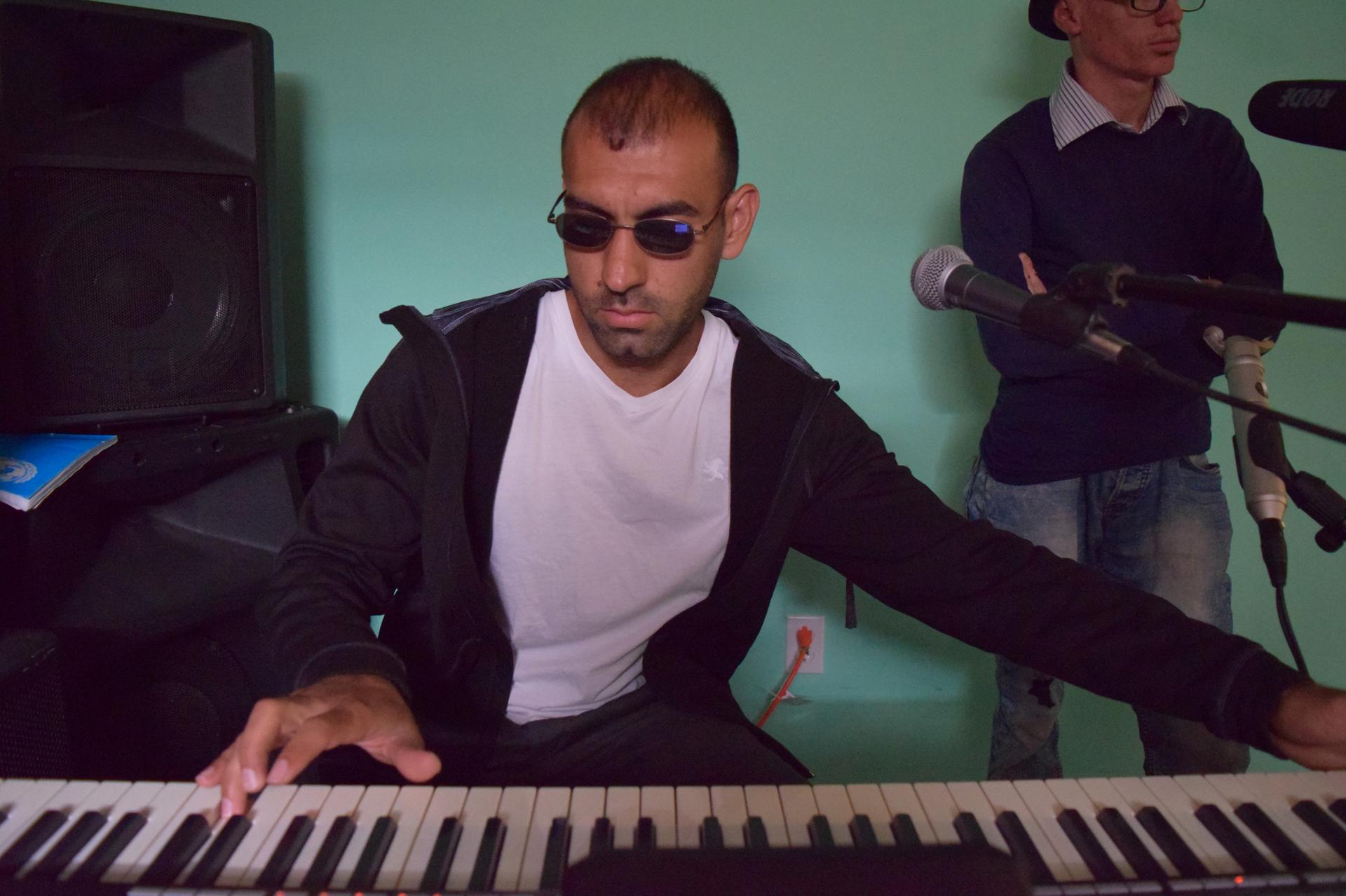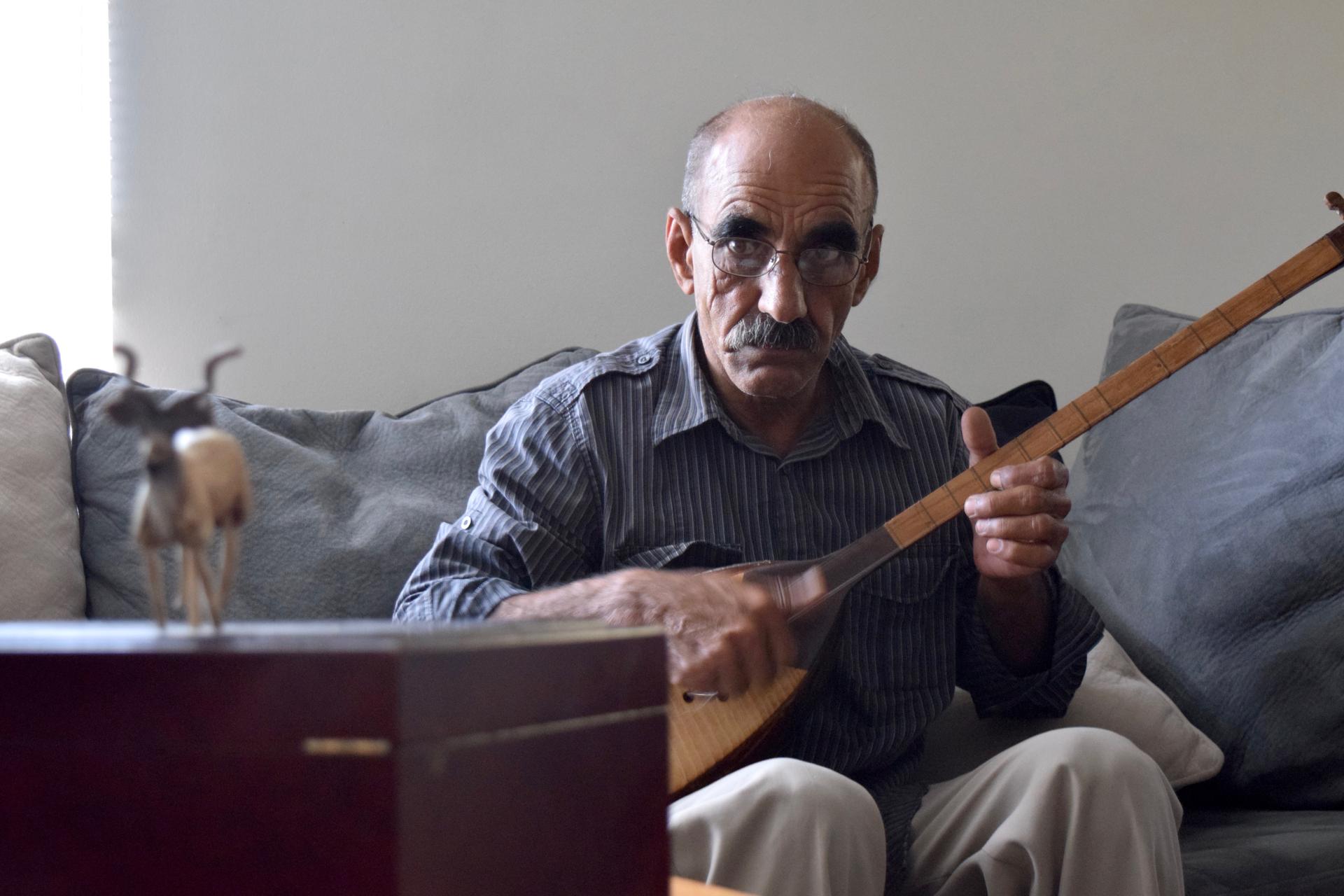Hamo is a Yazidi living in Lincoln, Nebraska.
Believe it or not, there's a large Yazidi population in Lincoln, Nebraska.
Some Yazidis, a Kurdish religious minority mainly found in northern Iraq, have been in Lincoln since the 1980s, while others came more recently, after escaping from ISIS with their families in 2014.
Not too long ago, members of the nonprofit group, Music in Exile, went to Lincoln to meet members of the Yazidi community, particularly musicians. Hassan was one of those musicians — he owns a local barbershop and came to the US in 1999. Hassan is both a barber and musician.
His last name and that of other local-living Yazidis aren't being used for privacy reasons.
Sasha Ingber, co-founder of Music in Exile, says Hassan "actually has a music studio to the side of the barbershop, so when you walk inside, immediately, just to the right of the barber chairs is this area where he makes music."
Imagine, you can get your hair cut, then record a track or two!
Many different kinds of music is recorded in Hassan's barbershop. And the music he plays is very diverse. He told Ingber that he's interested in Mexican guitar but has a pretty eclectic musical taste.
"I play that with my keyboards, even with Yazidis songs. I like the Native Indian flute … I play a lot of Turkish-style stuff."

Haedar is another Yazidi musician living in Lincoln now. Before his move to the US in the 1990s, he was living in a Syrian refugee camp.
Ingber says music is a way for Haedar to connect with the history of his homeland and to connect with other Yazidis living in exile.
"There is music where you can play in any situation. In whatever mood you're in, there's a song for it," he said. "There are comfort songs. There are war songs and then, there are love songs … You can always find comfort in some kind of music."

Music in Exile recorded 13 different musicians in Lincoln, including Hamo. Hamo plays a tambor that he made by hand. He started making the string instrument in 1988, when he was conscripted into Saddam Hussein's army during the Iran-Iraq war. He stopped making them when he returned to his village in Shingal (also known as Sinjar), only to start again in 2014 after ISIS invaded the region. He still makes them in his basement late at night. He often plays for enjoyment but admits, “I am not a musician.”
Our coverage reaches millions each week, but only a small fraction of listeners contribute to sustain our program. We still need 224 more people to donate $100 or $10/monthly to unlock our $67,000 match. Will you help us get there today?
